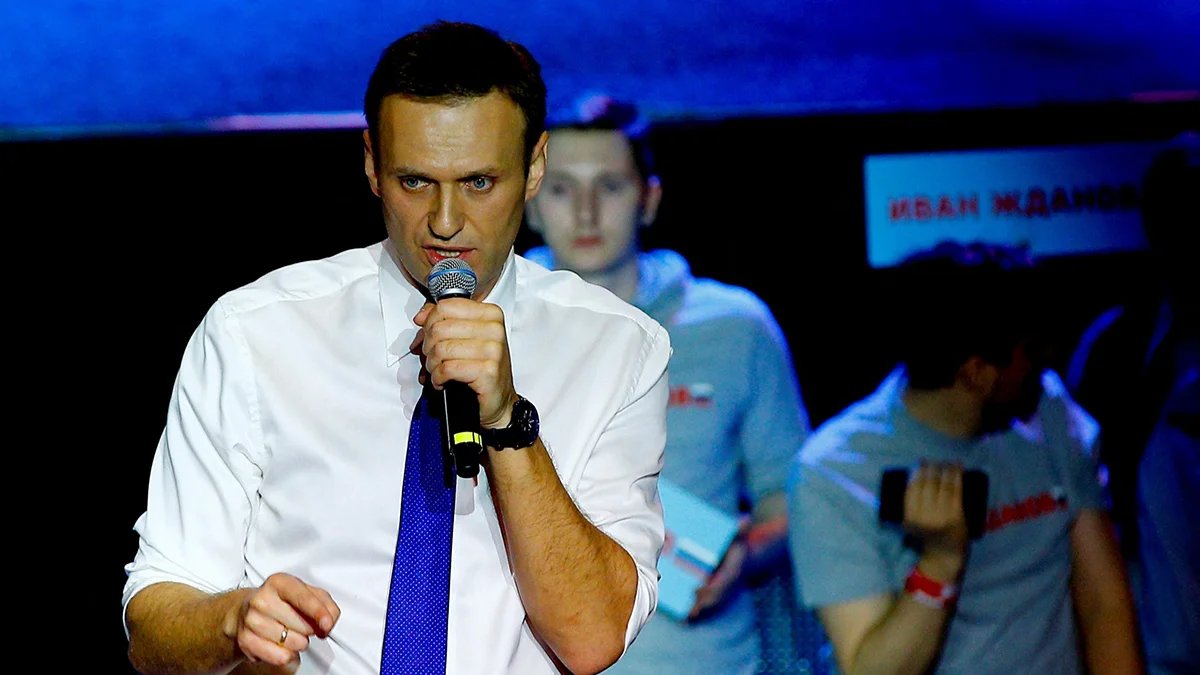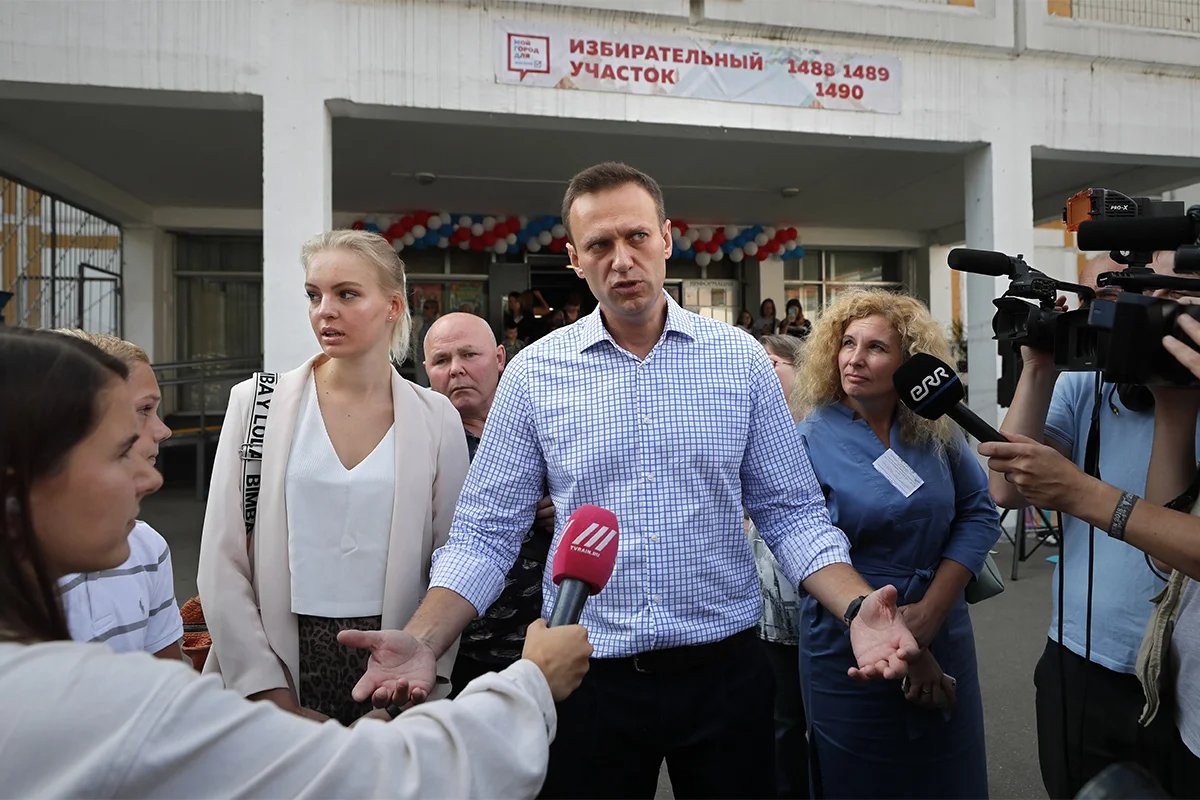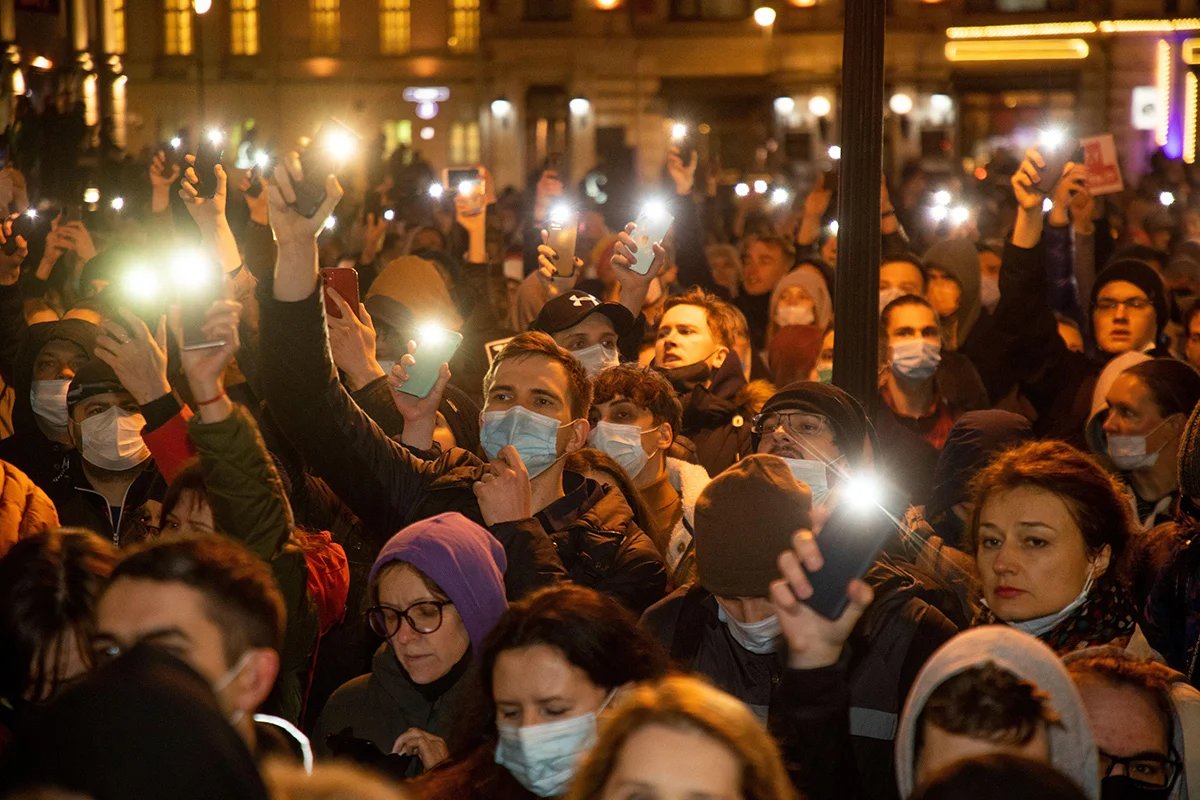
Photo: Sefa Karacan / Anadolu Agency / Abaca Press / ddp images / Vida Press
In the wake of opposition leader Alexey Navalny’s untimely death on 16 February, Novaya Gazeta Europe is publishing a manifesto written by activist Lev Ponomaryov and his colleagues from the Andrey Sakharov Movement for Peace, Progress and Human Rights. In it, the authors call on the Russian public to take part in the Noon against Putin campaign, which Navalny advocated from his prison cell shortly before he died.
Alexey Navalny’s murder in prison is a heinous crime that will inevitably affect Russia’s future. Navalny died in the ongoing battle against tyranny and we must do everything in our power not only to keep his dream of a free Russia alive but also to ensure that it soon becomes a reality.
Putin has humiliated and insulted Russia, turning it into a totalitarian state that debases human freedom and humanity itself. History demands that Russians remove Putin from power and restore the constitution that he has desecrated.
Navalny’s political legacy
Alexey Navalny told us explicitly what we should do if he were killed: “Don’t give up. If they decide to kill me, it means that we are incredibly strong.”
These now widely-quoted words were prophetic. Navalny was killed at a moment when we, the opposition, are growing stronger and Putin is getting weaker. No matter how complex the situation may appear from an international perspective, the truth is that Putin's popularity is waning in Russia. We see grassroots movements developing, civic activity growing even outside metropolitan areas, and a widespread desire for an end to the war and a return to normality.
These shifts demonstrate the popular desire for a political alternative.
In a very short space of time, Yekaterina Duntsova was able to inspire hundreds of thousands of people with her attempt to stand in the presidential election. When she passed the baton on to Boris Nadezhdin, tens of thousands of people across the country stood in line to support his nomination, while millions followed these events remotely. Setting aside their other differences, those with democratic and anti-war views have agreed to vote at midday on 17 March to show the true scale of the desire for change in the country.
The call to support Noon against Putin was Navalny’s final political statement. It may have been his death sentence.
But let this murder put an end to any strategic differences between the anti-war democratic forces, whether in Russia or abroad. Putin killed Navalny, and he has also made him the symbol of a united democratic opposition.
Every Russian has an opportunity to express their view by going to their polling station at noon on 17 March, writing Navalny’s name on the ballot sheet and voting for any candidate, or even for all of them at once, bar Putin.

Navalny speaking to journalists after voting in the Moscow City Duma election, 8 September 2019. Photo: Yuri Kochetkov, EPA-EFE
Continuing Navalny’s work
We must show absolute unity in the demands we make on both the Russian authorities and the governments of countries in the anti-Putin coalition.
We must make every effort to save the lives and secure the release of Putin’s other political prisoners. This applies first and foremost to Vladimir Kara-Murza, currently serving what is effectively a life sentence of torture at a penal colony in Siberia, despite being critically ill.
We must provide maximum support for Yulia Navalnaya, who has announced that she intends to continue her husband’s work. With Navalnaya’s active involvement, we must build a broad coalition of anti-war forces.
We must ensure that Noon against Putin becomes a truly mass event. As it can only be influential if it is very large in scale, it's imperative that all of Russia goes to stand in line at midday, and that the whole world sees it.
Everyone can work towards this goal: politicians, journalists, human rights activists, and any member of the population who supports change in Russia. Everyone can work on strengthening the movement’s overall effect, and opposition groups must either set aside or overcome their differences. We, both those who have left for exile and those who have remained in Russia, have one country, one problem, a set of common goals and a single common enemy.
We are coming to the decisive stage of a broad civil campaign for reform and a change of power in the country.
Between now and the election, the opposition must stand with Russians, offer them relatively safe ways to act, make their voices heard and win over doubters.
There are powerful and plentiful reasons to support the campaign against Putin. War and repression have caused huge damage to all areas of life in Russia. People are impoverished, standards in medicine and education are slipping, and civilian industries are in decline. There is growing frustration with the war and with mobilisation, which has killed tens of thousands of men and separated still more from their families. The movement started by the wives of Russian conscripts is also growing. These women are demanding their husbands' return and an end to mobilisation. This is more than just a humanitarian catastrophe: it is the breakdown of the very fabric of Russian society.
Russians abroad must closely follow opposition activity in Russia and provide whatever support they can.

Protesters holding up phones at a rally in support of Navalny, Moscow, 21 April 2021. Photo: Nikolay Vinokurov / Alamy / Vida Press
Will Putin’s entourage face purges?
People in high office, even those in Putin’s inner circle, should be feeling the same sense of dread and personal danger that opponents of the war do.
Purges of the elite will continue, the economy will shrink and repression will increase, which will inevitably affect even those who still feel that they are the masters of their own destiny.
Repression under Stalin grew continuously in the 1930s and eventually reached the party and ruling elite. After the 1934 murder of Soviet politician and Bolshevik revolutionary Sergey Kirov, who enjoyed popularity comparable to that of Stalin, the purges continued and reached their peak in 1937 as the party was preparing for Soviet and party elections. When speeches at the Communist Party plenum that March suggested Stalin could lose, Stalin promptly ordered Nikolay Yezhov, who was effectively the head of the secret police, to unleash the Great Purge after the plenum.
Of the 73 people who had spoken there, 50 who aroused Stalin’s suspicions were condemned. They were arrested and shot in the summer of 1937.
Between September and November 1938, the Great Purge drew to a close with wide-ranging arrests of Yezhov’s henchmen in the NKVD. Yezhov himself was replaced by Lavrenty Beria.
You would have to be blind not to see analogies with the current situation around Putin’s re-election and the war with Ukraine. Nobody is immune while Putin is in power. The people best placed to prevent modern purges are those in the country’s ruling elite and law enforcement agencies. They may just be able to save hundreds of thousands of ordinary people’s lives, as well as their own.
The Andrey Sakharov Movement for Peace, Progress and Human Rights expresses its sincere condolences to the family and friends of Alexey Navalny and to everyone who knew, loved and believed in him.
